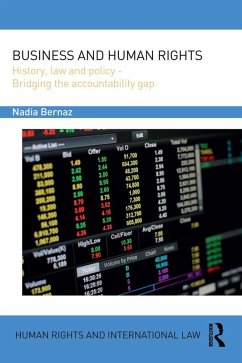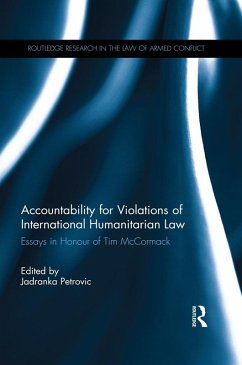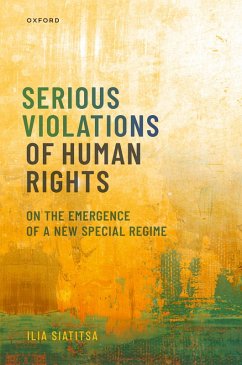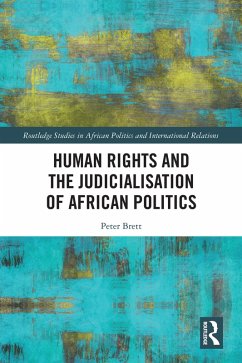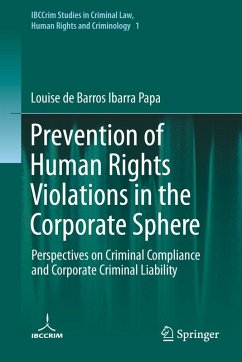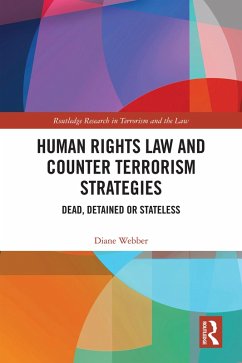
Understanding Human Rights Violations (eBook, PDF)
New Systematic Studies
Versandkostenfrei!
Sofort per Download lieferbar
41,95 €
inkl. MwSt.
Weitere Ausgaben:

PAYBACK Punkte
21 °P sammeln!
Originally published in 2004. This excellent volume presents a systematic analysis of various human rights violations around the globe, focusing on security and subsistence rights. The book collects important contributions to the theoretical development of the human rights phenomenon, covering a wide range of human rights issues and research approaches. The research presented combines a variety of qualitative and quantitative approaches and brings together both theoretical and empirical work. It places particular emphasis on making the advanced statistical methods that are used to test the arg...
Originally published in 2004. This excellent volume presents a systematic analysis of various human rights violations around the globe, focusing on security and subsistence rights. The book collects important contributions to the theoretical development of the human rights phenomenon, covering a wide range of human rights issues and research approaches. The research presented combines a variety of qualitative and quantitative approaches and brings together both theoretical and empirical work. It places particular emphasis on making the advanced statistical methods that are used to test the arguments accessible to a wider readership. Understanding Human Rights Violations will prove a useful tool for all in the fields of international human rights, peace studies, political violence and international law, and offers a valuable introduction into the literature on human rights violations.
Dieser Download kann aus rechtlichen Gründen nur mit Rechnungsadresse in A, B, BG, CY, CZ, D, DK, EW, E, FIN, F, GR, HR, H, IRL, I, LT, L, LR, M, NL, PL, P, R, S, SLO, SK ausgeliefert werden.




